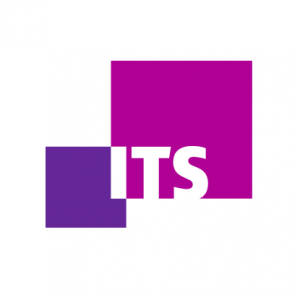Audrey Tang, a Leading Figure in Digital Democracy, Visits Brazil
Column by Ronaldo Lemos published in Folha de São Paulo.
published in
3 de December de 2024
categories
theme
Taiwan’s former Minister of Digital Technology, Audrey Tang,
demonstrates that there’s an alternative path for the Internet beyond
fake news, self-serving algorithms, and polarization.
As this article goes to press, Audrey Tang, former Minister of Digital
Technology of Taiwan, is in Brazil, visiting Rio de Janeiro this Sunday (23)
and Brasília on Monday (24).
Audrey Tang is a global celebrity, having graced the cover of Wired
magazine and featured in various TV shows and newspapers worldwide.
In any case, the reason behind it is unusual. She is renowned as the
foremost authority on digital democracy.
As she wrote in The New York Times: “Democracy improves as more
people participate. And digital technology remains one of the best ways
to improve participation — as long as the focus is on finding common
ground and creating consensus, not division.”
Tang shows that another path is possible for the Internet, one different
from the current landscape dominated by fake news, self-serving
algorithms, and polarization. From 2016 to 2024, she has developed
innovative tools to tackle these challenges by enhancing democracy.
For instance, during the pandemic, she played a pivotal role in countering
misinformation and digitally coordinating Taiwan’s response, leading to
only seven deaths and 455 COVID-19 cases among a population of 24
million.
Tang initiated a national consultation on the introduction of Uber in
Taiwan, created platforms to increase judiciary transparency, and
launched a consultation on regulating artificial intelligence this year.
An accomplished programmer, Tang has become a leading figure in
shaping the future of democracy. She contends that increasing
participation can counter this movement while the world trends toward
centralization.
And she is not alone in Brazil. Accompanying her is Glen Weyl, the
American economist whose book, “Radical Markets,” was described by
The Economist as “groundbreaking.” Weyl, who resided in Rio’s Vidigal
favela, formed many of his theories there, including a proposal to
overhaul the real estate market.
Together, Audrey and Weyl are launching a new book titled Plurality, which
is available for free download. The book provides an in-depth analysis of
how technology poses a threat to democracy,
examines the potential impacts of artificial intelligence on institutions
and outlines a comprehensive action plan to mitigate these negative
trends.
Central to their thesis is the concept of plurality. They argue that while
centralization leads to impoverishment, embracing plurality fosters the
development of sophisticated solutions to complex issues.
It’s such a compelling read. This book underscores that Brazil has a
history of embracing plurality, from the participatory budget now utilized
from Dubai to New York City to the 1988 Constitution, drafted with over
72,000 mailed contributions, and the collaborative creation of the Civil
Rights Framework for the Internet.
As Audrey Tang advocates: “When we see “internet of things,” let’s make
it an internet of beings. When we see “virtual reality,” let’s make it a
shared reality. When we see “machine learning,” let’s make it collaborative
learning. When we hear ‘the singularity is near,’ — let us remember: The
Plurality is here.”
What’s out: Believing technology is an irreversibly negative force.
What’s in: Working to reverse the dangerous trajectory of technology.
What’s next: Exploring concepts like plurality (Tang and Weyl) and
technodiversity (Yuk Hui) as modern antidotes.

